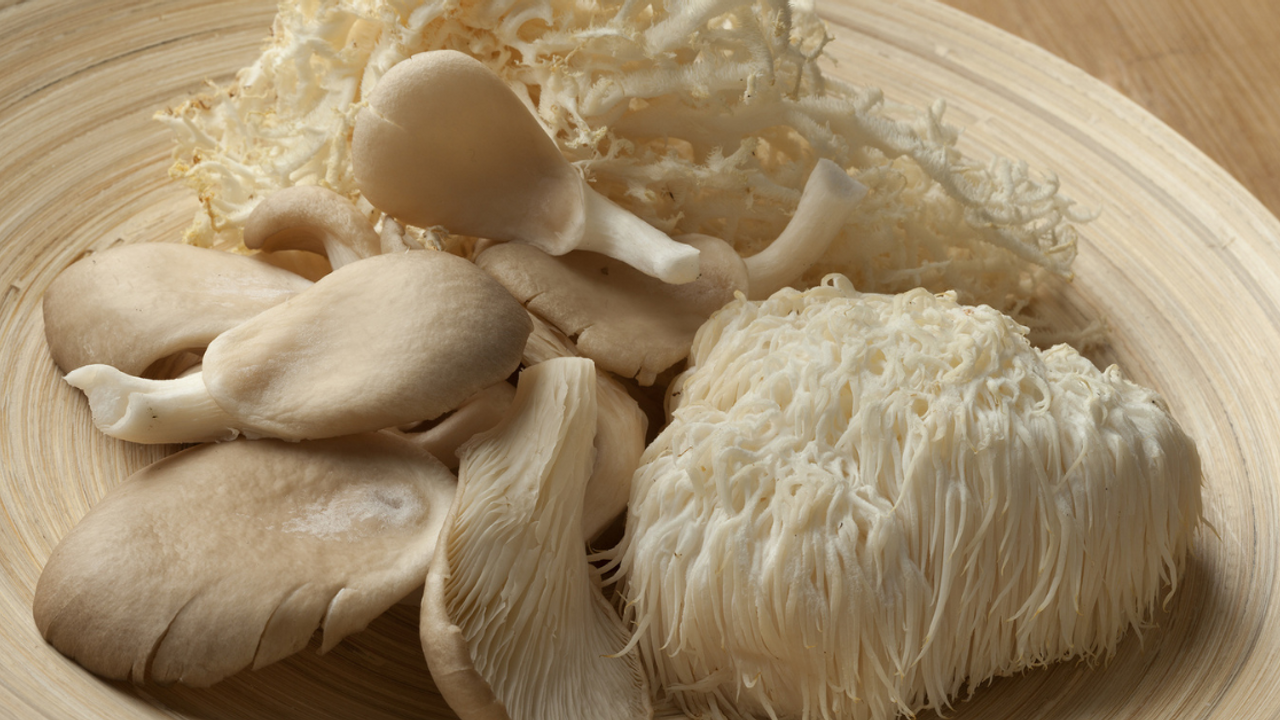Menopause Menu: Lion's Mane Mushroom
Jul 14, 2020
My “MENOPAUSE MENU” series is dedicated to exploring foods that can be easily assimilated into your diet. Today’s Menopause Menu is all about Lion’s Mane mushroom ( H.erinaceus), a culinary and medicinal mushroom that gets its name from its clump of dangling spines resembling a lion’s mane. It has been studied extensively for its neuroprotective properties and shown to promote positive brain and nerve health. Lion’s Mane has also been shown to be effective in improving mild cognitive impairment.
The brain-protecting and anti-inflammatory properties make it especially interesting for menopausal women. Estrogen is known as a master regulator for ensuring the brain works as it should. The decline in estrogen during menopause is linked to neurological dysfunction and puts women at an increased risk of neurological decline after menopause. Alzheimer’s (AD) and other neurodegenerative diseases have moved up significantly on the list of chronic diseases. Two-thirds of patients living with AD-dementia are women and 60% of those affected are postmenopausal women. Many of the symptoms of perimenopause such as depression, cognitive dysfunction, insomnia, mood changes, are believed to be largely neurological in nature.
This is why I’m always interested in finding ways to incorporate adjustments that could be beneficial to both the brain and the menopause transition. One such adjustment is to include mushrooms in your diet. Mushrooms are low in calories and fats while being rich in proteins, fibers, vitamins, and minerals. Adding mushrooms into your diet is good for your overall health because of their nutritional value and their neuroprotective and anti-inflammatory properties. Evidence suggests that mushrooms may play an important role in the prevention of age-associated neurological decline, including AD and Parkinson’s disease.
There are thousands of edible mushrooms and almost all of them are known for their polysaccharide components, which play a role in boosting the immune system. There are 270 mushroom varieties considered to have therapeutic or preventative properties for improved health and Lion's Mane is one of them. Lion's Mane has a long history of cultivation both as food and as medicine. They can be cooked, eaten raw or taken as a supplement. I add powdered lion's mane to my coffee or tea or drink it alone with hot water. No matter which way you decide to consume Lion's Mane, you will receive the anti-inflammatory, brain-boosting benefits. Always focus on buying high-quality and organic varieties. To give you some ideas on how you can prepare raw lion’s mane, check out this recipe.
My favorite description of mushrooms comes from a poem found in an ancient Egyptian temple.
“Without leaves, without buds, without flowers; Yet they form fruit.
As a Food, as a tonic, as a medicine: The entire creation is precious.”



